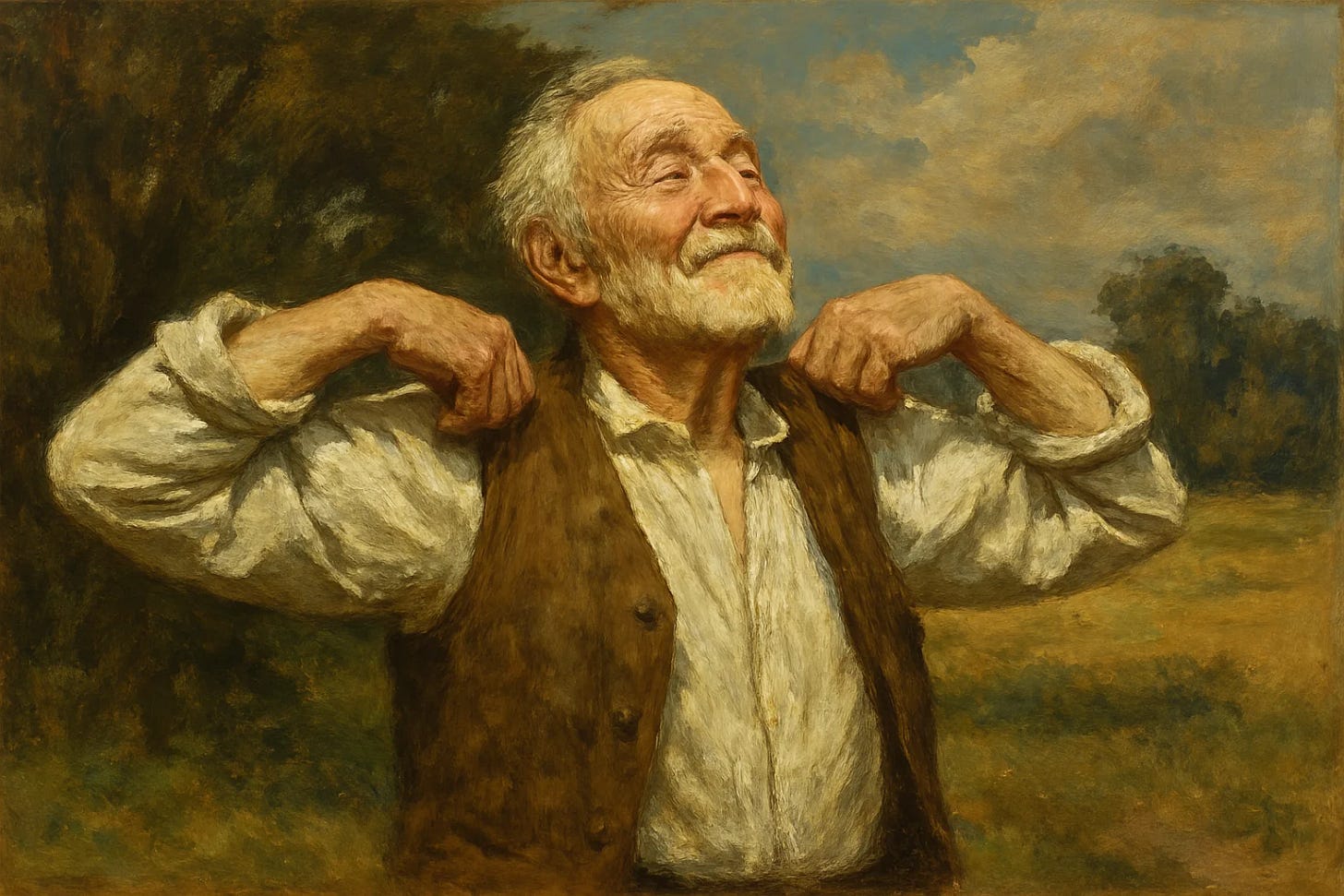It's time to loosen your shoulders.
"Your body hears everything your mind says." – Naomi Judd
Right now, as you read these words, notice your shoulders. Chances are they've crept up toward your ears, holding tension you weren't aware of until this moment of attention.
This isn't coincidence or personal failing. It's a common physical manifestation of how we move through the world braced against what might come, unconsciously armoured for battles we're not actually fighting.
The invitation to loosen your shoulders is deceptively simple. It appears to be about physical adjustment, about comfort or posture.
When we carry our shoulders high and tight, we're often embodying a deeper pattern: the habit of meeting life with tension rather than presence, with resistance rather than receptivity.
What would it mean to deliberately lower them? To allow the trapezius muscles to soften, to let the shoulder blades slide gently down the back?
Physically, it creates space for fuller breath, for easier movement, and for the free flow of energy through arms and hands. But it also represents a different stance toward existence: one that acknowledges vulnerability without assuming threat.
This isn't about permanent relaxation; muscles are made to contract and release, to engage when needed. The issue is not tension itself but the chronic, unconscious holding that becomes so familiar we mistake it for normal.
The body speaks wisdom that the conscious mind often misses. While our thoughts race forward to future concerns or backward to past regrets, the body remains stubbornly present.
Try it: deliberately lower your shoulders away from your ears. Feel the shift not just in physical sensation but in emotional tone. Notice how this small adjustment can create a subtle but immediate sense of increased ease.
Why should you loosen your shoulders?
Physical states influence mental states: How we hold our bodies shapes how we experience our thoughts and emotions.
Tension often outlives its usefulness: Many of our physical responses were appropriate for past situations but no longer serve us.
Awareness creates choice: Simply noticing tension is the first step toward releasing it.
Small adjustments yield significant shifts: Changing your physical posture can create ripple effects through your entire experience.
This practice becomes especially valuable in moments of stress or challenge. Before difficult conversations, during tense meetings, amid frustrating traffic; these are precisely the times when our shoulders climb without our awareness.
So loosen your shoulders. Not because tension is bad or relaxation is good, but because the conscious choice to shift from one to the other represents the larger freedom we're all seeking: the ability to respond rather than merely react.
How we inhabit our bodies shapes how we experience our lives, and sometimes the most profound changes begin with the simplest of movements.



